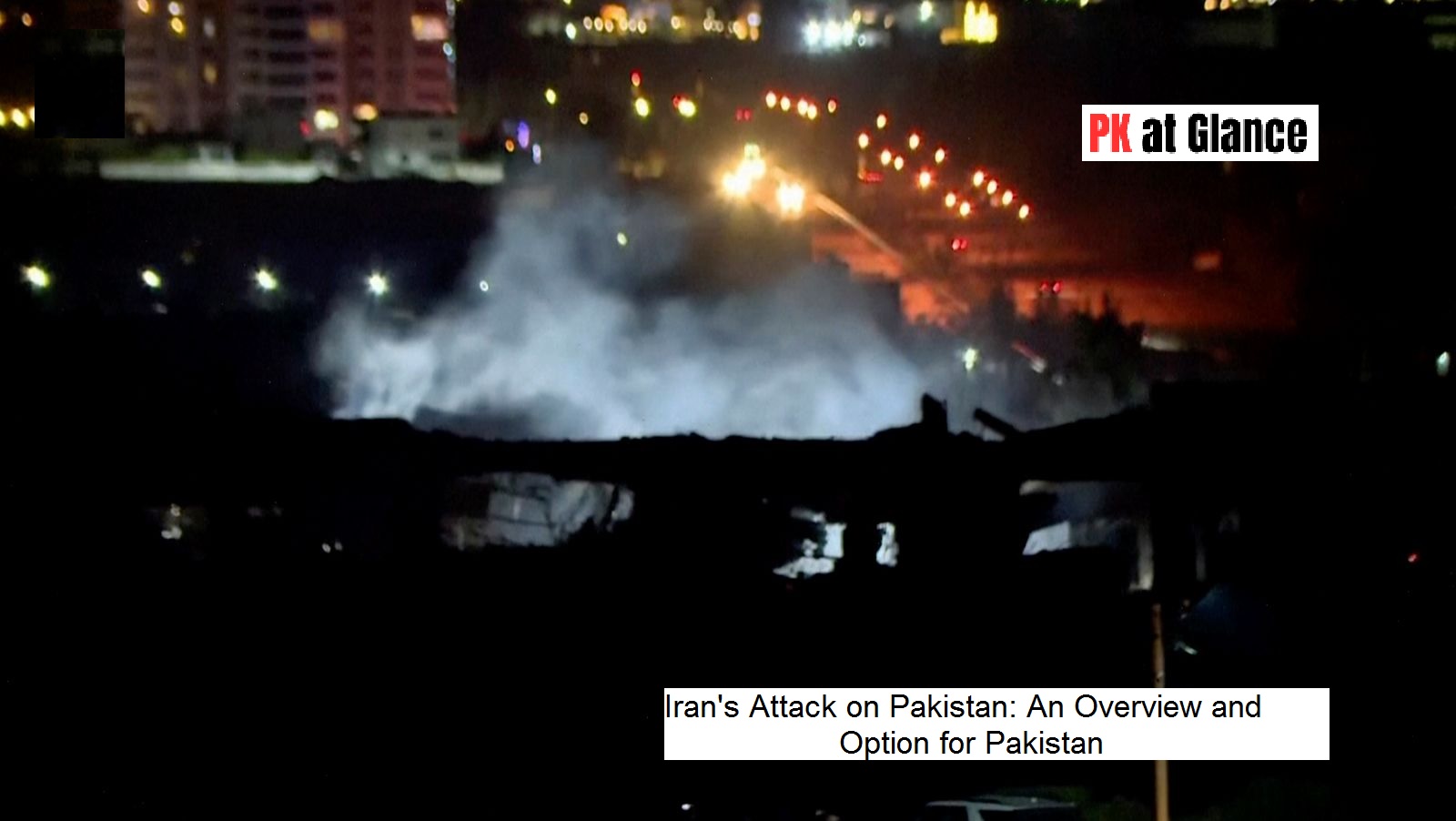On Tuesday night, Iranian missiles hit the Pakistani province
hours after Iranian Foreign Minister Hossein Amir-Abdollahian had met Pakistani
Caretaker Prime Minister Anwaarul Haq Kakar on the sidelines of World Economics
Forum in Davos, Switzerland. Iran’s Attack was considered by Pakistan as the violation
of its sovereignty.
 |
| Image Credit: Google |
According to Iran’s state media, the Iranian forces targeted
the headquarter of terrorist group Jaish al-Adl.
Meanwhile, Tehran’s top diplomat has alleged that his
country’s armed forces targeted an “Iranian terrorist group” in Pakistan later
Tuesday night, reported Dawn.
Furthermore, Foreign Minister Hossein Amir-Abdollahian said, “On
Pakistan, none of the nationals of the friendly and brotherly country of
Pakistan were targeted by Iranian missiles and drones.” While the media in
Pakistan reported civilian’s loss claiming two young girls killed, three family
members injured, a mosque and two houses were damaged.
In a press briefing in Islamabad, while responding to the
incident, Pakistan’s Foreign Office spokesperson Mumtaz Zahra Baloch said last
night’s “unprovoked and blatant breach of Pakistan’s sovereignty by Iran” was a
violation of international law and the purposes and principles of the Charter
of the United Nations.
She said, “This illegal act is completely unacceptable and
has no justification whatsoever,”.
“Pakistan reserves the right to respond to this illegal act
and the responsibility for the consequences will lie squarely with Iran,” she continued
while saying that her government has conveyed a message to Iranian government.
Background:
The skirmishes in the border areas between Pakistan and Iran
are not new as both the states have faced insurgency and terrorism from the
very long time. Both the sides have several times pointed each other about the
loopholes near border areas that favors insurgent groups.
According to NYT, it is for the first time that Iran has
attacked deep into the side of Pakistani territory.
Pakistan’s Action in Response to the Attack:
In response to the attack, Foreign Office of Pakistan took
several measures:
- Issued statement condemning the attack and calling it a violation of its sovereignty.
- It has decided to recall its ambassador from Iran.
- It has suspended all high-level visits, ongoing or planned between the two countries.
- The Iranian ambassador who is visiting his home country will not be allowed to return to Islamabad.
- After 48 hours of the incident Pakistan retaliated with operation "Marg Bar Sarmachar" by hiting terrorist hideouts in Iran.
The Challenging Situation for Pakistan:
According to New York Times, a former air marshal in the
Pakistan Air Force M. Ashfaq Arain has said that Pakistan is in delicate position:
- As it is run by caretaker set up till the elections.
- Having no elected government complicates the response.
- Pakistan is now confronting troubled relations with three of its neighbours after the attack.
- India has long been the adversary of Pakistan.
- The ties of Pakistan with Afghanistan have also soured from the past few months.
Iran and Middle East Crisis:
The Iranian attack on Pakistan is followed by Iran’s previous
attack on Iraq for the same reason.
According to NYT, since the outbreak of Israel-Palestine War
in October last year, Iran has used its proxy forces against the Israel and its
allies.
This move could potentially contribute for regional tensions.
This could also be seen as an attempt to engage its neighbours in the Middle
East conflict.
Option for Pakistan in the wake of Iran’s Attack:
Pakistan is undoubtedly a bigger military force than Iran in
terms of power and resources. It can retaliate the aggression with a hard power.
But this would be an irrational move as this could aggravate the instability in
the Middle East and potentially trigger more conflicts in the region involving
Afghanistan and India.
Therefore, it Pakistan can only retaliate with measured military response like it did in the above said operation.
Diplomatic Engagement and De-Escalation:
The major option for Pakistan is diplomatic engagement and
de-escalation. It could compel Iran to seek an apology for the violation of its
territorial integrity.
Pakistan can involve Turkey, Malaysia and Indonesia to
pressurize Iran to refrain from such activities in the future because of
regional stability and Muslim unity.
Pakistan has also adopted the policy of peaceful co-existence,
mutual-respect and brotherly relations with Muslim countries. So, it needs to realize
international community, particularly Iran that it adheres to its foreign
policy principles and responding with military attack was against the spirit of
its policy and ideology.
It could compel Iran to discuss border issues and problems
relating to terrorism on diplomatic table instead opting for unilateral military
action. The terrorist threats could be eliminated by jointly by the two
countries.
Pakistan should not involve Western partners as Iran has
already tensed states of relations with majority of the Western powers.
So, de-escalation through diplomatic means is the comparatively
a good foreign policy option for Pakistan by keeping in the view the current
scenario.
The writer has expertise in field of Politics and International Relations

Post a Comment